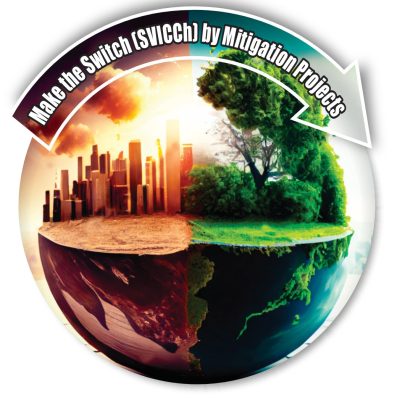Digital solutions including AI
Predict Weather
Flow of water and Icebergs
Flow of wind and rain
Heat models
Identify pollution, air, land, sea
AI to predict flooding patterns in Mozambique.
AI-powered models can provide early warning
systems to alert communities about impending disasters.
Innovative adaptation technologies
Such asAI-powered models can provide early warning systems to alert communities about impending disasters. The Biosphere Reserves as Observatories for Climate Change Adaptation in Southern Africa (Be-Resilient), for example, uses AI to predict flooding patterns in Mozambique.
Agri-food systems and crop management can be optimized
with AI predicting the best planting times, assessing soil health and monitoring pest and disease outbreaks. AI-driven precision agriculture can also reduce water usage, promote sustainable farming practices and boost food production. The Intergovernmental Authority on Development (IGAD), for instance, is using AI to enhance impact-based forecasting by the Climate Prediction and Applications Centrein East Africa’s agriculture sectors, which is key for food security, livelihoods and economic development.
Renewable energy systems’
Efficiency and reliability can be improved by AI algorithms that predict energy demand, optimize grid operations and integrate renewable energy sources seamlessly, reducing greenhouse gas emissions and promoting a shift toward low-emission energy solutions. One example is the Global Renewables Watch, a live atlas intended to map and measure utility-scale solar and wind installations using AI and satellite imagery, allowing users to evaluate clean energy transition progress and to track trends over time.
